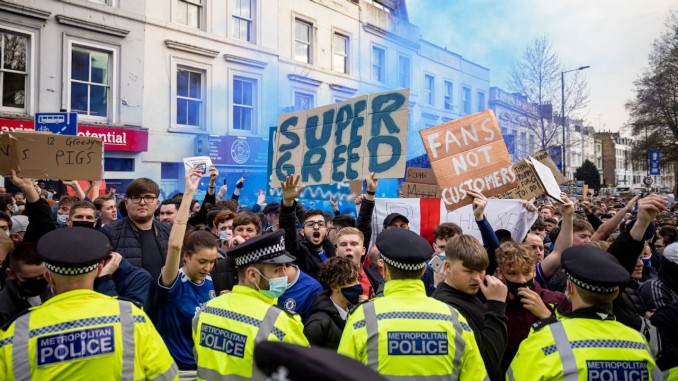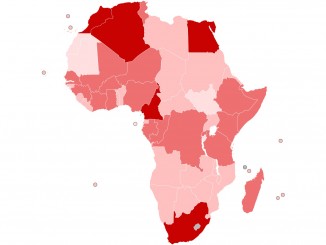
Recently the global soccer world was taken by storm. Twelve of the most powerful and famous professional soccer teams in the world (who are based in Europe) announced they would create a new “Super League.” The Super League would have ruined how professional soccer in Europe has traditionally been organized to benefit only this group of wealthy teams. How did this develop, and what was the response?
The most competitive soccer leagues in the world right now are based in Europe. For fans and players across the world, European soccer is seen as the pinnacle of the sport. Major European soccer clubs such as Real Madrid or Manchester United have hundreds of millions of fans across the world.
Almost all European countries feature a domestic soccer league such as the Premier League in England, or “La Liga” in Spain. This is the equivalent of what the NBA or the NFL are for basketball and football in the United Sates.
In addition to the national leagues, there is a European-wide tournament each year called the “Champions League,” in which the teams with the best records from the different domestic leagues in Europe compete against one another in a knockout tournament to be crowned the best team in Europe.
The Champions League is viewed as the most prestigious professional soccer tournament in the world. What makes it so enjoyable for fans is appreciating the world-class talent on show by the players, and the fact that any professional team in Europe has the chance to win it by finishing as one of the best teams in their domestic league and then qualifying for the Champions League tournament.
The reality is however that a handful of clubs often dominate the domestic leagues and Champions League because they have so much money and can afford to buy the best players which ensures their continued dominance. The big clubs are run like multinational corporations, always seeking to make the most money possible. This is where the idea of the Super League started.
The owners of twelve of the biggest clubs from England, Spain, and Italy met in secret, and decided to form their own version of the Champions League called the Super League. Instead of needing to compete against other smaller clubs from other countries, they decided that they should just form their own league of the super-rich and powerful and negotiate directly with TV companies to broadcast their tournament every year. This was nothing more than a money grab to be able to take a bigger cut of the pie and not share advertising revenue with “smaller” teams.
It is tough to find a good comparison to what this would have looked like if it happened in an American sport, but it would be the equivalent of teams like the Red Sox and Yankees pulling out of Major League Baseball and forming their own smaller league so they could try to take a bigger cut of ad revenues.
What this proposal meant in practice was that it would eliminate any sort of genuine sporting competition in European soccer. Instead of having a merit-based system where every team had a chance to play in the Champions League based on their sporting performance on the field, the Super League would have replaced it and featured the same rich and famous teams each year, raking in all the money.
In response, fans across Europe rebelled against the proposal, organizing massive protests at major stadiums throughout Europe. Among the most militant leaders of the protests were fans rebelling against their own teams whose owners wanted to create the Super League.
Fans knew this was an attempt to destroy the soul of soccer so that the rich could become richer, and they would not let it happen without a fight. Fans from clubs like Liverpool FC protested their own team’s owners, unfurling banners that said, “Love for the Working Class Game Ruined by GREED.”
Inspired by the fan’s example, players also began to break their silence and openly defy their employers by publicly saying they did not agree with the Super League concept as it eliminated the competitive spirit of sport that they and so many fans love.
Within 48 hours of announcing the proposal, the owners of the teams who created the Super League were forced to rescind the proposal due to the fan uproar. Many team owners came back with their tails between their legs and released statements to fans saying they “made a mistake” and “had misjudged the situation.” They knew exactly what they were doing, however. The only reason it did not go through is because of the forceful response by the fans.
We can learn from the European soccer fans who revolted against this proposal. They knew they had to resist this attempt by the bosses to ruin the game they loved. Because of their actions, they were able to stave off this money grab.
This small fightback in European soccer mirrors the daily struggles of the capitalist system everywhere. Large corporations are only concerned with. making profit, always at the expense of ordinary working people. But, when we are organized, we see that we are more powerful than they are.




